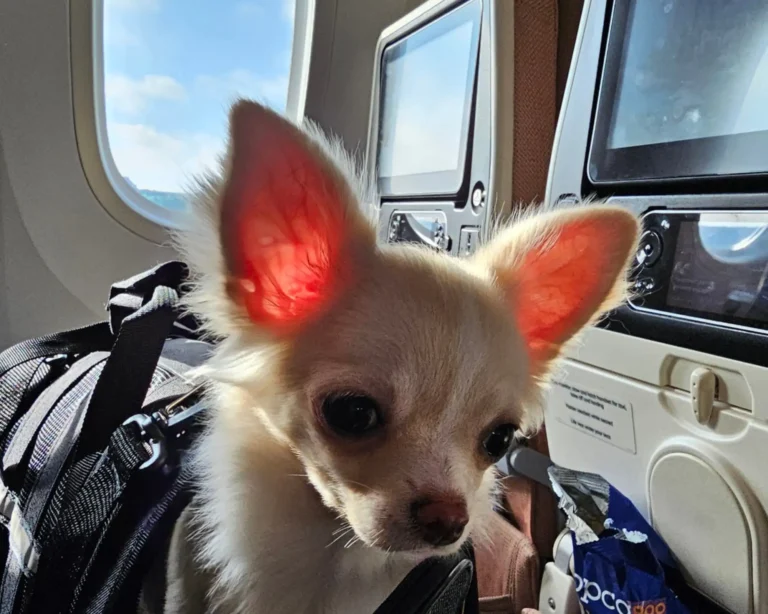Pet ownership in Malaysia has grown significantly in recent years, with many Malaysians embracing the companionship and safety pets provide.
If you’re planning to relocate to Malaysia with your furry friend, it’s important to familiarize yourself with the country’s import requirements for pets.
Are you considering bringing dogs and cats to Malaysia soon? Keep on reading for a detailed overview to help you navigate the process.
A guide to pet relocation to Malaysia: Key requirements to keep in mind
General eligibility
Malaysia categorises export countries into Scheduled and Non-Scheduled for pet importation purposes, applying slightly different import requirements and rules for the two categories. The major difference between the two being that pets from Scheduled countries generally do not need to go into quarantine upon arrival whilst pets from Non-Scheduled countries do.
Pets that require isolation and quarantine are required to enter from a port with isolation and quarantine facilities. There are currently four quarantine stations in Malaysia accommodating cats and dogs:
- Batu Maung Quarantine Station at Penang International Airport
- Rantau Panjang Quarantine Station at the eastern Thai-Malay border crossing
- Padang Besar Quarantine Station at the western Thai-Malay border crossing
- KLIA Quarantine Station at Kuala Lumpur International Airport
You find the general import requirements for bringing a pet cat or dog into Malaysia below.
Age limit
Pet cats and dogs should be at least 3 months old at the time of importation into Malaysia.
Microchip
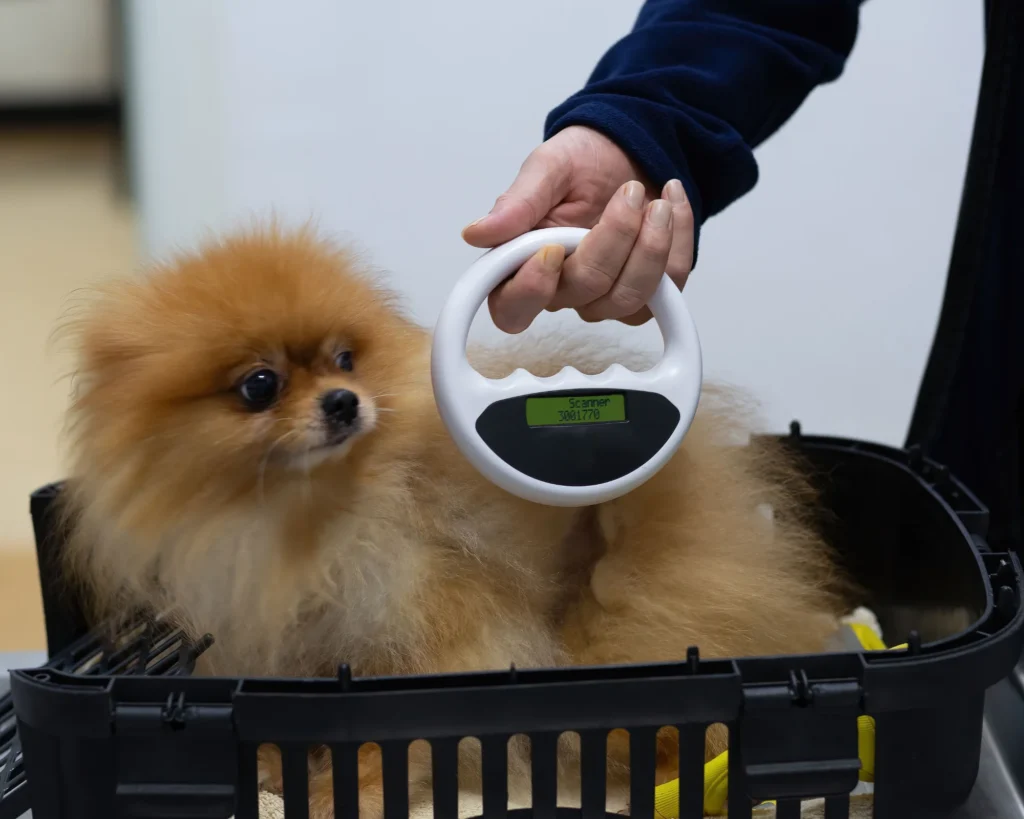
All animals should be identified using an ISO 11784 & 11785 compliant microchip, with the microchip number clearly noted in the accompanying vaccination certificate or pet passport.
The pet must have been implanted with the microchip on the same day as, or before administration of any mandatory rabies vaccinations and blood tests.
Rabies vaccinations
An approved and up-to-date rabies vaccine should have been given to the pet cat or dog before export.
Other vaccinations and treatments
Within 12 months prior to export, the pet should have received a core vaccination shot, recommended by a licensed veterinarian.
Import permit
An import permit is essential for bringing pets into Malaysia. This permit is issued by the Malaysian Quarantine and Inspection Services Department (MAQIS).
The import permit for dogs to Malaysia is also subject to the breed of the dog. Below you’ll find a list of banned and restricted breeds.
For restricted breeds, you will need to obtain an approval to import from the Director General of MAQIS before you apply for an import permit.
Banned breeds, as the name suggests, are not allowed for importation to Malaysia.
Veterinarian health certificate
All cats and dogs entering Malaysia must have a veterinary health certificate issued by the relevant veterinary authority in the exporting country within seven days of their departure. This certificate confirms that the pet is in good health and meets specific conditions to ensure they do not pose a risk to animals or humans in Malaysia.
The document should verify that the pet was examined and found to be healthy, showing no signs of rabies or other infectious diseases, both at the time of certification and immediately before travel. Additionally, the certificate must confirm that no cases of rabies have been reported in the exporting country for at least six months prior to departure, and the pet has not been imported into that country during the same time period.
The certificate must document the pet’s complete vaccination history, any treatments they’ve received, and their current health status to provide assurance of their fitness to travel.
Quarantine
All cats and dogs arriving from a non-scheduled country, Canada, Australia and China must undergo at least seven days of quarantine upon arrival into Malaysia.
During the quarantine period they may be vaccinated against rabies.
If the pet shows signs of infection, it may be detained for up to six months, subject to an individual risk assessment.
For some countries, the minimum quarantine period exceeds seven days:
- Australia: 10 days
- Thailand and Sarawak: 14 days
Understanding country classifications and specific guidelines
Scheduled countries
These include the United Kingdom, Ireland, Northern Ireland, New Zealand, Japan, Sweden, Brunei, and Singapore. The import procedures for pets travelling from these countries are less strict, and the major difference is that they are not required to go into quarantine upon arrival into Malaysia.
Non-scheduled countries
This category includes all other countries not listed as Scheduled, or special cases (see below). Pets from Non-Scheduled countries are subject to stricter import requirements and will need to undergo a minimum of seven days post-entry quarantine at one of the country’s quarantine facilities.
Special cases
Australia, Canada, and China have unique guidelines that are different from both Scheduled and Non-Scheduled countries. Read on to see how they differ.
Australia
Pet cats and dogs imported from Australia are subject to minimum 10 days quarantine upon arrival and in addition to the general requirements listed above:
- They should have tested negative for Hendra Virus within 14 days before departure.
- Dogs should be vaccinated against canine adenovirus type 2, canine distemper, canine parainfluenza, and canine parvovirus within 12 months before departure.
- Cats should be vaccinated against Chlamydia psittaci, feline calicivirus, feline panleukopenia and feline rhinotracheitis within 12 months before departure.
- They should be treated against external and internal parasites between 2 and 7 days of export.
- They should present a veterinarian health certificate, specific for cats and dogs exported from Australia to Malaysia.
Canada

Pet cats and dogs arriving from Canada follow the same import guidelines as those coming from Non-Scheduled countries with the only difference being the information stated in the veterinary health certificate. Make sure to use a template specific for export from Canada.
China
China is part of the Non-Scheduled countries, but cats and dogs imported to Malaysia from China are subject to even stricter import restrictions.
In addition to the import requirements for pets departing from a Non-Scheduled country, they will need to test negative for Corona virus and are not allowed to have any contact with other animals on the day of shipment, nor share transportation with any other animals of different health status going to Malaysia.
Banned and restricted dog breeds
Malaysia classifies certain dog breeds as banned or restricted. Banned breeds are not allowed to be imported into the country, whereas for restricted dog breeds, the owner will need to obtain a special approval before applying for the import permit.
Restricted breeds
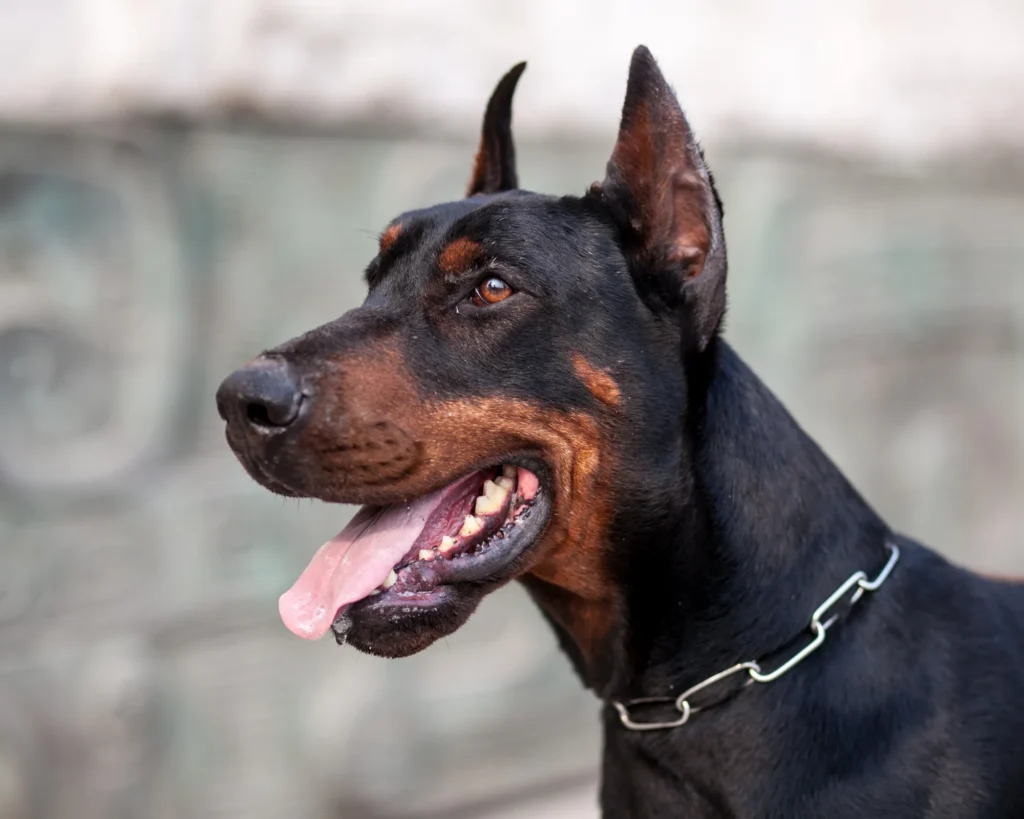
- Bull Mastiff
- Rottweiler
- Doberman
- German Shepherd
- Perro de Presa Canario
Banned breeds
- Akita
- Pit Bull Terrier
- Dogo Argentino
- Japanese Tosa
Special approval process for restricted dog breeds
To import a restricted breed, you must obtain written approval from the Director General of Malaysian Quarantine and Inspection Services (MAQIS). You will need to provide the following proof and documentation when applying for the special approval:
- Age: The dog must be at least three months old at the time of import.
- Pedigree Certificate: Issued by an approved organization in the country of export, detailing the dog’s lineage.
- Microchip Identification: The dog must have an ISO-compliant microchip, with the identification code recorded in the pedigree certificate.
- Importer Details: Provide the name and address of the individual responsible for the dog’s care in Malaysia.
- Premises Inspection: The intended residence will be inspected to verify adequate facilities for housing the dog.
- Declaration: A written statement confirming the dog is a personal pet, not intended for sale, will be securely confined, leashed and muzzled in public, and under the control of a trained handler if used for security purposes.
For more details, check the DVS guidelines on importing restricted breeds.
Common challenges for pet owners in Malaysia
Bringing dogs and cats to Malaysia comes with its rewards, but also a few challenges to navigate:
Pet-friendly housing
Finding pet-friendly accommodations in Malaysia, especially for dog owners, can be challenging. Many landlords and residential areas impose restrictions on pets, so you’ll need to research thoroughly or work with a relocation agent who specializes in pet-friendly housing.
Access to public spaces
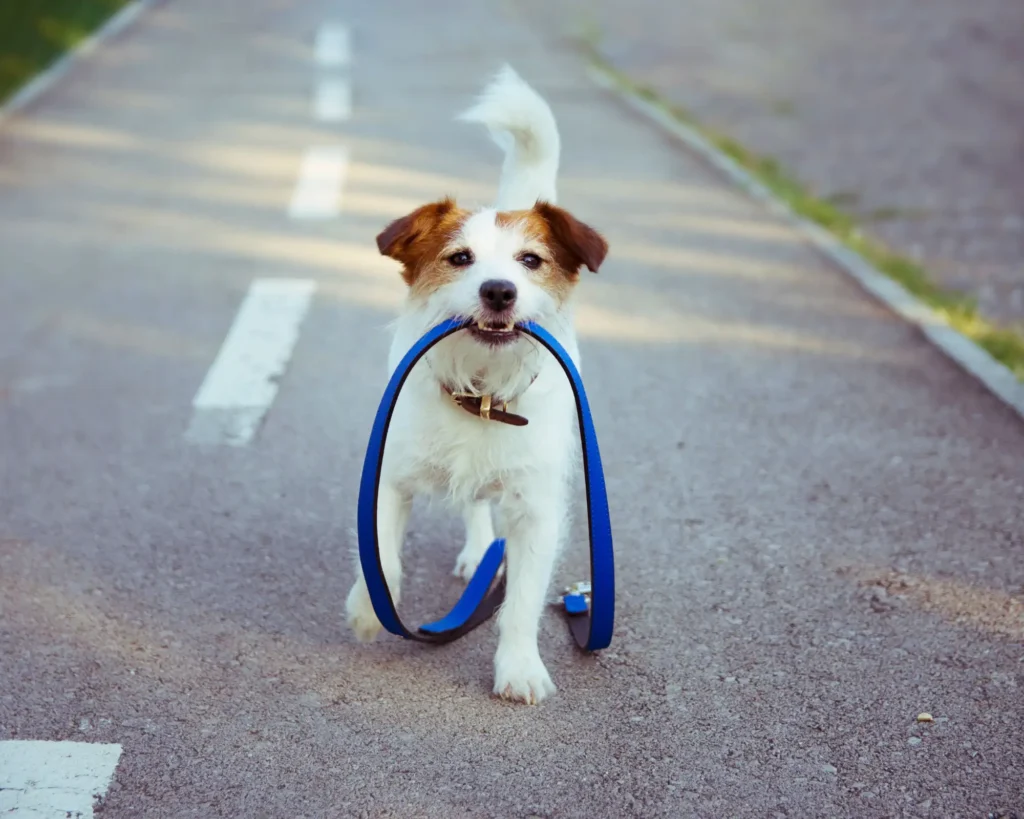
While Malaysia is gradually becoming more pet-friendly, there are still limited public parks and recreational areas that accommodate pets. This might mean fewer opportunities for outdoor activities with your furry friends.
High costs of pet care
Quality veterinary services, pet food, and grooming products are readily available, but they can be expensive, especially for imported brands or specialized care. Budgeting for these costs is essential.
Cultural and regional differences
Attitudes toward pets, particularly dogs, can vary depending on the region. In some areas, dogs are less commonly kept as pets, which might limit services or social acceptance.
Dog licensing in Malaysia
Dog owners settling in Malaysia must keep in mind to apply for a dog license upon arrival. Dog licenses are issued by the local council and will depend on the size of your premises, with a typical limit of up to 4 dogs. You will need to renew your license annually.
For details, check your local council website or consult resources like Petotum.
A guide to pet relocation to Malaysia: Essential steps for a smooth importation
Successfully importing your pet to Malaysia requires careful preparation and adherence to regulations. Start by understanding the specific requirements based on your home country. Malaysia categorizes countries into Scheduled, Non-Scheduled, and special cases like Australia, Canada, and China, each with unique importation guidelines. Identifying your country’s classification early will help you plan accordingly.
One of the first steps is obtaining an import permit. To do this, gather all required documents and submit your application well in advance to make sure you have sufficient time to address any issues that may arise during the process.
Simultaneously, schedule an appointment with your veterinarian to confirm your pet meets Malaysia’s health requirements. Your vet will administer any necessary vaccinations, perform mandatory tests, and treat for internal and external parasites if needed.
If quarantine is required, you should book a spot at an approved facility at your port of entry. This should be done well in advance to secure space and avoid delays upon arrival. The minimum quarantine period is seven days, but may vary depending on the exporting country.
Travel arrangements also need careful planning. If you’re uncertain, consult a pet moving agent to learn about your options regarding travel methods and make necessary arrangements to book your pet’s flight. Make sure your pet’s carrier complies with IATA standards and meets the airline’s guidelines for pet transportation. If you’re travelling with your pet as luggage or carry-on, notify the airline in advance to confirm availability and ensure a seamless check-in process.
Finally, when your pet arrives in Malaysia, prepare to present all necessary documentation to customs and quarantine officials. Be ready to pay any applicable fees and make sure you understand the procedures at the entry point to speed up the process.
Malaysia offers a welcoming environment for pets, but it’s necessary to prepare well to make sure your transition is as easy as possible. By understanding the requirements for import permits, quarantine, and vaccinations, and addressing housing and transportation challenges, you can successfully bring your fur baby to your new home.
For detailed information and assistance, visit the MAQIS website or contact our pet relocation specialist team.
How do Purrfect Pilots work and how can we help you
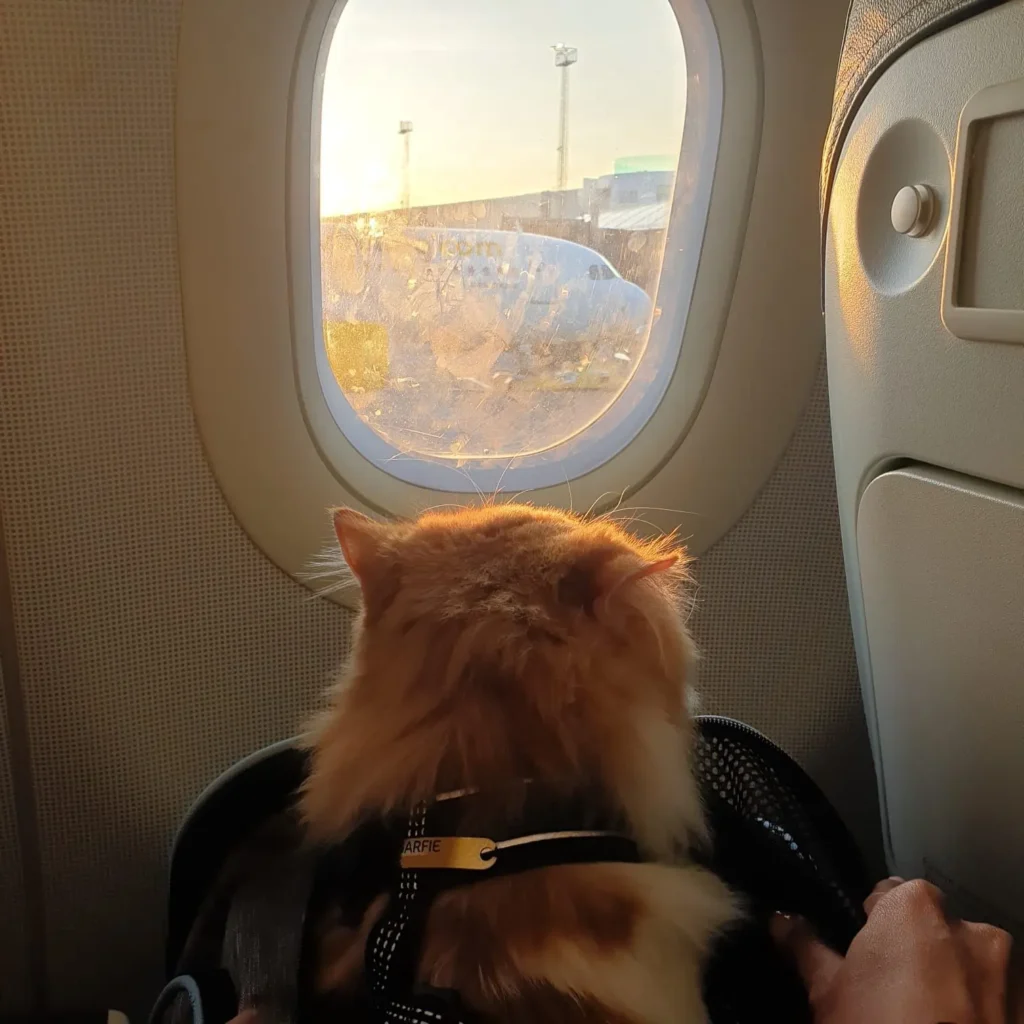
As an experienced pet moving agent specializing in international relocation, we are familiar with the full process of pet relocation to Malaysia. Our job is to ensure that your pet has the most comfortable transition possible during their journey and to give you regular updates about your pet throughout the move.
To take off some of the financial burden of relocating to Malaysia with your pet, we can offer tailored payment plans. Ask your Purrfect Pilot about available options.
During our years of operations, we have built a wide network of professional pet care professionals with the same commitment and passion as we have.
Your pet will only be handled by carefully selected partners where our team can not be present. Our partners are professionally trained in handling live animals according to the IATA live animal regulations and meet Purrfect Pilots’ strict partner requirements.
We offer full transparency from pricing to execution of your pet move and we are great at planning perfect moves.
But to be honest, our biggest strength lies in our industry knowledge and ability to “fix things” when needed. Because moving a pet can become quite the adventure and we always work with a B and a C backup plan to get your pet to destination.
Few pet moves are one-size-fits-all, at Purrfect Pilots we want to listen to your expectations and preferences, and support you in the way you need and want us to.
Purrfect Pilots is a dependable pet mover that helps relocate and travel pets to many countries, including those countries with strict import regulations like the EU, U.S. and Australia. Are you looking forward to bringing dogs and cats to Malaysia? We can help you reunite with your pet.




